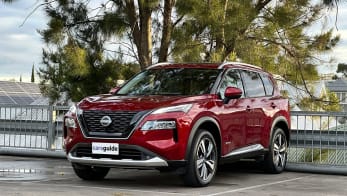A landmark study has tackled one of the biggest philosophical questions surrounding autonomous cars; exactly who the vehicle should choose to crash into in the case of an unavoidable accent.
For as long as autonomous cars have been a part of the motoring conversation, people have struggled with the concept of exactly how the vehicle's brain will behave in a potentially fatal emergency.
The most popular imagined scenario goes something like this; if your autonomous car is driving over a bridge and a group of children step out in front of you, how should the car be programmed to respond? Should it run into the pedestrians, almost certainly killing more than one person, or should it swerve left or right and launch off the edge of bridge, taking you with it, but only costing a single human life instead of several?
Now a major International study, published in Nature, has asked that very question, and the answers might surprise you.
Researchers from the Massachusetts Institute of Technology launched a global ethics quiz which asked people around the world who they though a car should save in the case of an unavoidable accident. The quiz got more than two million responses, and while some answers were predictable (like saving people instead of pets), some surprising new trends emerged.
People showed a preference for saving athletic people over those who are overweight, for example, and even saving executives or white-collar workers over people perceived as homeless. Pregnant women and children were seen as too great a sacrifice, with respondents choosing to crash into older people instead.
"Before we allow our cars to make ethical decisions, we need to have a global conversation to express our preferences to the companies that will design moral algorithms, and to the policymakers that will regulate them," the study reads. "The Moral Machine was deployed to initiate such a conversation, and millions of people weighed in from around the world."
But people working in vehicle autonomy argue studies like these focus on hugely unlikely scenarios, with the most common vehicle response to any situation almost always going to be coming to a complete stop as quickly as possible, as opposed to swerving into anything.
“It takes some of the intellectual intrigue out of the problem, but the answer is almost always ‘slam on the brakes’,” Google engineer Andrew Chatham told The Guardian. “You’re much more confident about things directly in front of you, just because of how the system works, but also your control is much more precise by slamming on the brakes than trying to swerve into anything.
"It would need to be a pretty extreme situation before that becomes anything other than the correct answer.”


.jpg)

.jpg)


.jpg)



.jpg)
.jpg)
.jpg)

.jpg)




Comments